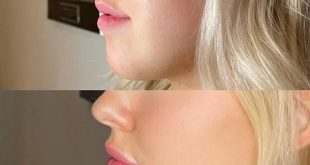Hemp oil is one of the considerable natural remedies that can be used in several ways to manage a variety of conditions. Hemp oil, which should not be confused with CBD or marijuana oil, is made from the seeds of the Cannabis sativa plant, which has low concentrations of THC and CBD. Depending on the way it is extracted from the cannabis plant, hemp oil does not have any sedative effects. Thus, it is currently well-known for various purposes, including individuals’ health and general well-being, cooking and skin care products, and even hair care. However, purchasing medical cannabis products, particularly those with high levels of THC, requires the use of a medical marijuana card, Hialeah. Moreover, it necessitates speaking with an MMJ expert.
This article will emphasize the nutrients in hemp oil and how they could improve your hair.
What is hemp oil?
Nowadays, hemp is gaining traction as a natural remedy for various health-related issues, such as stress and skin problems. Based on research, hemp oil is also rich in all nine essential amino acids required by our body to make protein, as well as the unsaturated fats omega-6 and omega-3. It comes in myriad forms, like shampoos, oils, conditioners, creams, hair gels, etc., but using the right product demands expert advice.

Hemp Oil versus Cannabis Oil
Hemp has been used since the early Chinese civilizations employed hemp seeds and hemp seed oil for culinary purposes. Today, its therapeutic properties cannot be ignored, and medical professionals are considering its use to ease various health conditions and manage symptoms of some chronic illnesses.
Given that both are derived from different plant species of the same botanical family known as Cannabis, the names hemp oil and cannabis oil are frequently used interchangeably. However, these two oils differ in the plant part from which they are extracted and in their properties, benefits, extraction techniques, and constituents, among other attributes.
Hemp oil is produced from the cannabis plant but with little to no traces of tetrahydrocannabinol (THC). It contains cannabidiol (CBD) that can aid in managing several medical conditions, such as pain, vomiting, and spasms.
On the contrary, cannabis oil is extracted from cannabis and constitutes tetrahydrocannabinol (THC), cannabidiol (CBD), and other cannabinoids that add to its potency.
Methods of Use
Hemp oil can be applied directly to the face, body, and hair strands as it is anti-inflammatory and skin-friendly. The most desirable hemp oil for cosmetics and household use is cold-pressed hemp oil, as it retains its natural lipids and vitamins without undergoing further processing.
The cosmetic industry is utilizing hemp oil in a variety of ways. Moreover, hemp oil can be beneficial for hair as it contains soothing nutrients that can nourish the scalp.
Let us read more about how hemp oil can be used for hair.
Does hemp oil improve hair?
Hemp has significant soothing and therapeutic properties and can be used in hair care products, skin treatment creams, topicals, as well as modern medicine. The hemp oil extract includes advantageous cannabinoids, and hemp oil that is cold-pressed from hemp seeds can improve the hair and scalp when consumed orally or applied topically.
Hemp oil can help with various hair issues, including dry or itchy scalp and hair loss problems. It can be advantageous for the hair in the following ways:.
Given that both are derived from different plant species of the same botanical family known as Cannabis, the names hemp oil and cannabis oil are frequently used interchangeably. However, these two oils differ in the plant part from which they are extracted and in their properties, benefits, extraction techniques, and constituents, among other attributes.
Hemp oil is produced from the cannabis plant but with little to no traces of tetrahydrocannabinol (THC). It contains cannabidiol (CBD) that can aid in managing several medical conditions, such as pain, vomiting, and spasms.
On the contrary, cannabis oil is extracted from cannabis and constitutes tetrahydrocannabinol (THC), cannabidiol (CBD), and other cannabinoids that add to its potency.
- Improved hair growth
- Restoration of damaged hair
- thickening of hair
- preserves the hair by protecting its shine
Hemp oil use, whether topical or oral, requires professional guidance. It is important, particularly for those with underlying health issues or allergies. Thus, approaching a professional with expertise in the relevant field is recommended.

Constituents of Hemp Oil
Hemp oil contains hair oleic acid, stearidonic acid, and gamma-linolenic acid (GLA), which promote skin development and the production of new cells while acting as potent anti-inflammatory agents.
The antioxidant content of hemp oil extract prevents free radicals and oxidative stress from damaging our cells. Additionally, hemp oil comprises a lot of terpenes and flavonoids that can help reduce infection, along with vitamins and minerals that can shield your hair from harm and hair loss.
However, if you are looking for ways to use hemp oil, you should consult a specialist with complete knowledge about hemp oil.
Significance of Expert Guidance
Certain studies indicate that hemp oil has medicinal value and can be used for managing health issues, including nausea and pain. However, if you are considering the use of hemp oil, contacting a healthcare professional is important. They can offer support and guidance to ease your path to wellness using natural products.
Final Thoughts
Hemp oil has numerous benefits to offer for the hair and the overall health of an individual. However, using hemp oil or any other cannabis product requires expert guidance. You can speak with a qualified expert who can assist you with the right type or dose of hemp oil for hair health. Moreover, if you are opting for products with high levels of THC, it is necessary to get your medical marijuana card in compliance with the laws.






